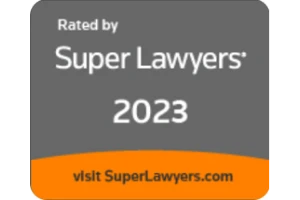Start Again
What is Mediation’s Role in your Contested Custody / Visitation Case?
Mediation is provided early in the proceeding to help the parents reach their own resolution of the custody/visitation dispute. The primary purposes are to (1) reduce acrimony; (2) develop an agreement assuring the child close and continuing contact with both parents that is in the child’s best interests, consistent with the Family Code Section 3011 factors and Section 3020 policies; and (3) effect a settlement of the parties’ visitation rights that is in the child’s best interest. Only if mediation fails to effect an appropriate settlement will the matter proceed to a contested hearing. The court at that point has discretion to order additional mediation, but is not required to do so.
All contested custody and/or visitation issues between the parties (whether in connection with an initial temporary or permanent custody/visitation order or a modification of an existing order) must be set for mediation pursuant to Family Code Section 3160. Likewise, mandatory mediation is required whenever a stepparent or grandparent has applied for a visitation order. The mediation must be set “before or concurrently with the setting of the matter for hearing” – in other words, it must occur before the dispute proceeds to a contested hearing. And each party and his or her attorney of record must be given notice of such.
Any party to an existing case has the option to request that the court set the custody/visitation issue for mediation prior to filing a petition, application or other pleading to obtain or modify temporary or permanent custody/visitation order. And the court has the discretion to do so. However, the legislature has offered no guidance regarding when a prepetition mediation request would or should be ordered. Thus, it depends on if you or your attorney can persuade the court that the particular circumstances in your matter require mediation even though no petition or Request for Order has been filed.
It is important to note that a party cannot avoid the mediation process. Family Code Sections 3170(a)(1) and 3171 are not “suggestive” of authority to mediate; the statutes compel mandatory custody/visitation mediation. If a party does not set the dispute for mediation, then they are barred from having their case heard by the court. Similarly, failure to participate in the mediation process may bar an uncooperative parent from being heard on his or her custody/visitation request. A court has gone so far as to suspend an attorney for (among other things) knowingly frustrating implementation of mandatory custody mediation. See Bach v. State Bar (1987) 43 C3d 848.
Luckily, every superior court is required to make a custody/visitation mediator available for an individual who is a party to the case. The mediator may be a member of the professional staff of a family conciliation court probation department or mental health services agency, or “any other person or agency designated by the court,” but must meet minimum statutory qualifications required of conciliation counselors which is outlines in Family Code Section 1815 and Section 3164(a)&(b). The mediator’s role and authority is that they must use their best efforts to effect a settlement of the custody/visitation dispute that is in the child’s best interest consistent with the family Code Section 3011 factors. Also, mediations have the duty to assess the needs and interests of the child involved in the dispute and are entitled to interview the child when deemed “appropriate and necessary” as stated in Family Code Section 3180(a).
Finally, in a successful mediation, the custody and visitation issues are resolved by agreement of the parties. But the mediator cannot transform the agreement into a court order as this would be an unauthorized exercise of the court’s power. Rather, the agreement must be returned to the court for confirmation and then it is incorporated into a court order.
If your case is set for mediation, or you must begin the mediation process you will most likely want to consult with a family attorney for assistance. There are deadlines, and mandatory steps that you must take during the process. Additionally, your attorney can provide you with valuable guidance prior to the meetings and can represent you, if legal proceedings become necessary. How effective the mediation will be may heavily depends on your actions. Mello & Pickering is here for your legal questions, and we offer a discounted initial consultation! Call today to speak to one of our experienced family law attorneys.















